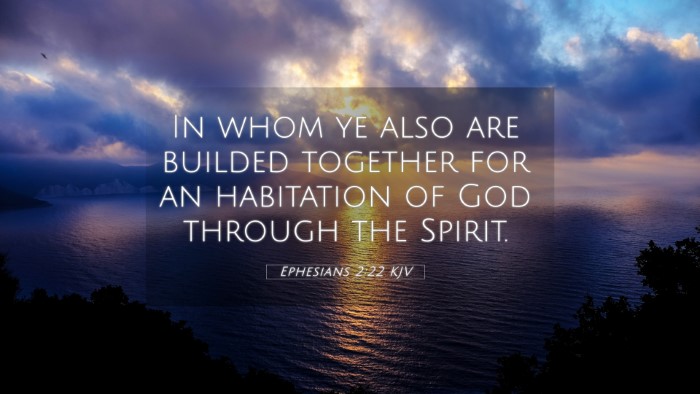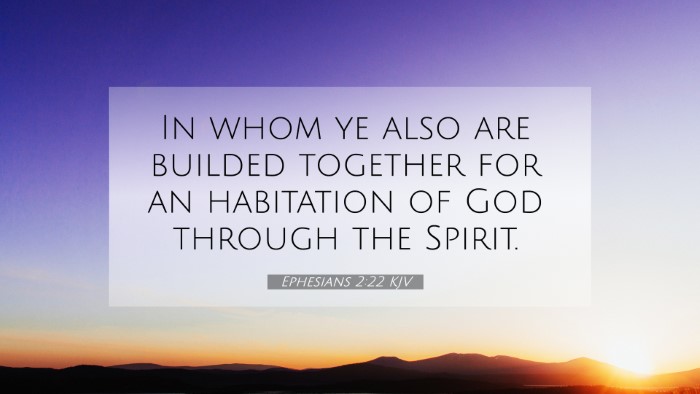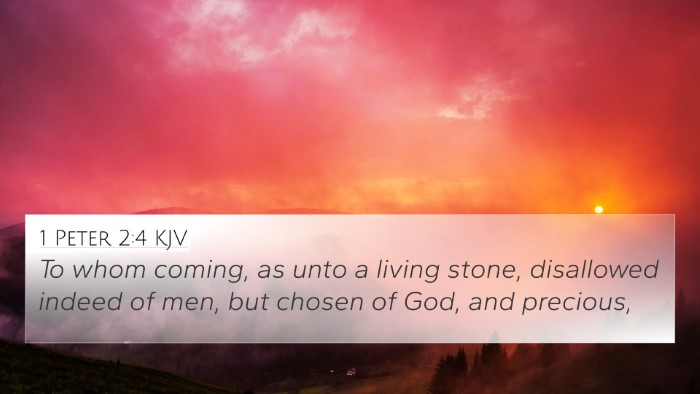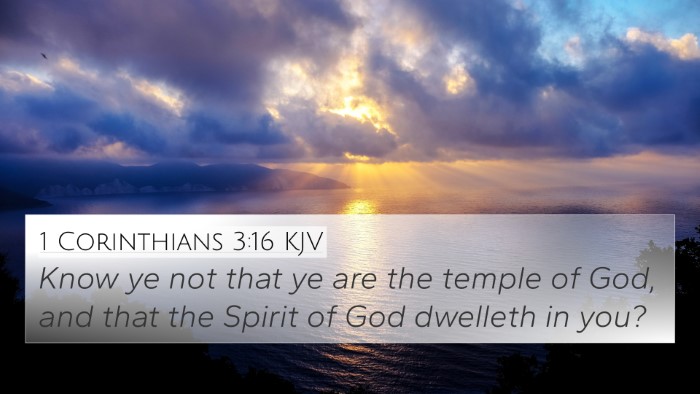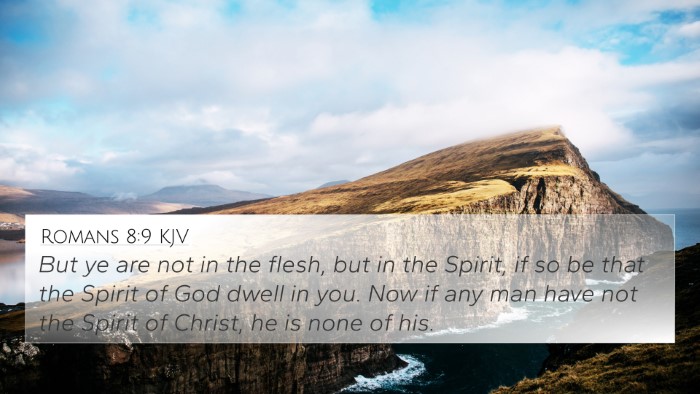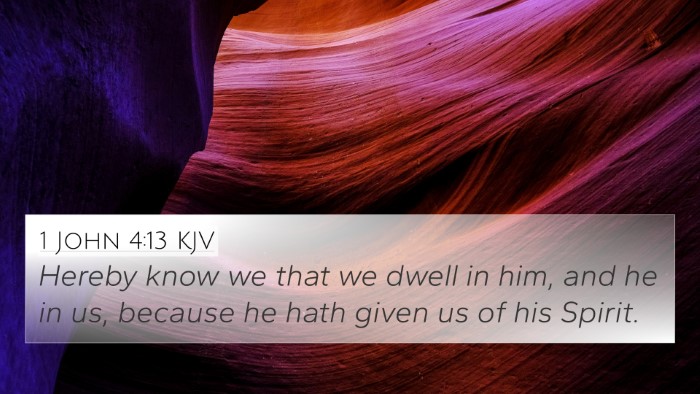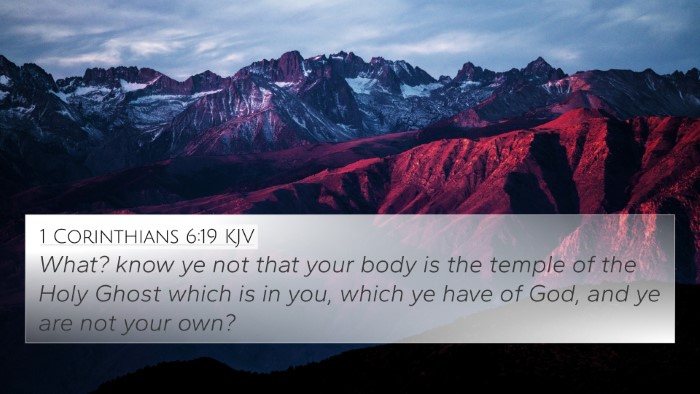Ephesians 2:22 - Verse Meaning and Interpretation
Ephesians 2:22 states, "In whom ye also are builded together for a habitation of God through the Spirit." This verse signifies the unity among believers as part of the body of Christ and their collective role in being a dwelling place for God's Spirit.
Contextual Understanding
The Apostle Paul, in this passage, emphasizes the transition from separation from God to being part of His family—a theme prevalent throughout the epistle. Other verses in this chapter illustrate the grace that brings together diverse individuals into the church's unity.
Key Themes
- Unity in Christ: Believers are collectively built up as a spiritual house.
- Indwelling of the Spirit: The Spirit of God resides within the gathered believers.
- Identity as God's Temple: The Church is portrayed as a sanctuary for God's presence.
Bible Verse Cross-References
To deepen the understanding of Ephesians 2:22, we can look into several relevant cross-references:
- 1 Peter 2:5: "Ye also, as lively stones, are built up a spiritual house." - This verse reinforces the metaphor of believers as stones forming a spiritual edifice.
- 1 Corinthians 3:16: "Know ye not that ye are the temple of God?" - Highlights the spiritual significance of the collective body of believers.
- Acts 2:4: "And they were all filled with the Holy Ghost." - Illustrates the fulfillment of being a habitation for the Spirit through the early church.
- Ephesians 2:19-21: Provides additional context on being fellow citizens with the saints, building on the apostles' foundations.
- Revelation 21:3: Speaks of God's dwelling among men in the ultimate establishment of His kingdom.
- Colossians 1:27: "Christ in you, the hope of glory." - This emphasizes the indwelling presence of God in believers.
- John 14:23: "If a man love me, he will keep my words: and my Father will love him, and we will come unto him, and make our abode with him." - Further reflects God's desire to dwell with His people.
- Hebrews 3:6: "But Christ as a son over his own house; whose house are we..." - indicates the close relationship between Christ and the Church.
- Matthew 18:20: "For where two or three are gathered together in my name, there am I in the midst of them." - Reflects the significance of community in the presence of God.
Comparative Bible Verse Analysis
A deeper examination of the aforementioned cross-references reveals significant insights into the theme of unity and the collective identity of believers within the Church. Each verse contributes to the understanding that the Church is not just a physical assembly but a spiritual entity where God dwells.
Tools for Bible Cross-Referencing
For those seeking to explore Bible verse connections further, utilizing a Bible concordance or a cross-reference guide can be extremely beneficial. These tools enable scripture to be systematically linked, enriching one’s study and understanding of biblical texts.
Inter-Biblical Dialogue
Ephesians 2:22 encourages a broader view of scriptural interconnectivity. By observing how themes resonate from the Old Testament through to the New Testament, one can see the cohesive narrative that God provides, illustrating a continued dialogue throughout the scriptures.
Identifying Connections Between Old and New Testament
The concept of God's dwelling can be traced from early biblical narratives, such as in the construction of the Tabernacle, to the establishment of the temple in Jerusalem, and ultimately to the established Church as portrayed in the New Testament. Understanding these connections brings new dimensions to Ephesians 2:22 and reflects on God's unchanging desire to reside with His creation.
Conclusion
Ephesians 2:22 is a profound verse that highlights the importance of unity among believers and their collective relationship with God. By examining cross-references and engaging with related scriptures, we gain a richer understanding of our identity as the dwelling place of God—a central theme in Christian theology.

